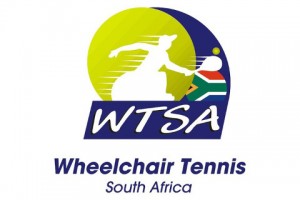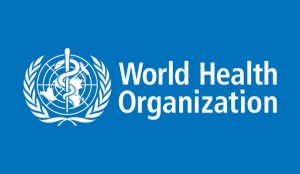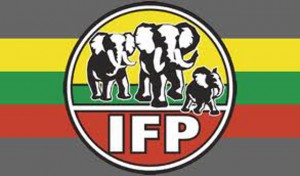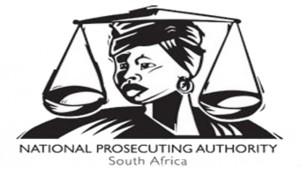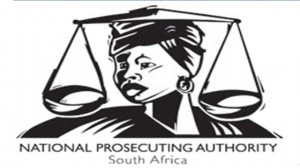Joint Sitting Debate on the 2016 State of the Nation Address
Address By Prince Mangosuthu Buthelezi MP
President of the Inkatha Freedom Party
National Assembly: 16 February 2016
Honourable Speaker; Honourable Chairperson of the National Council of Provinces; Your Excellency the President; Your Excellency the Deputy President; Honourable Ministers; Honourable Deputy Ministers; Honourable Members –
At the beginning of this year, the Cape Town Press Club invited me to deliver an alternative State of the Nation Address, revealing what South Africa really needed to hear. I noted then that although I have served as Acting President of the Republic on 22 occasions, and although I have debated with four different presidents over the course of 21 years in this House, I have never had the onerous duty of doing what His Excellency the President did last Thursday.
I also said that what we most needed to hear was a good dose of honesty: about the economy, about the fracturing of social cohesion, and about the dire situation our people face because of drought.
To my mind, it is better to be frank with our people, so that they will know how long the night will last and whether the dawn is actually coming. Our people are remarkably patriotic and have been enduringly patient. It is morally reprehensible to feed them empty promises; and it is eminently dangerous.
I must therefore commend the President; for his address on Thursday was frank. It did indeed acknowledge the grim circumstances in our country. He did not shy away from the fact that despite the hopes expressed in the National Development Plan that we could achieve a 5% economic growth rate by 2019, that will not happen.
This forces us to face the fact that there is no prospect of turning our economy around in the foreseeable future. For that 5% growth rate was our only hope for creating the level of employment South Africa needs.
Regardless of the myriad challenges put forward to justify the difficulties our economy faces, the closing line of the President’s address was honest: “We cannot change the global economic conditions, but we can do a lot to change the local conditions.”
In this regard, the IFP welcomes the establishment of an inter-ministerial committee dedicated to enhancing investment, and we welcome greater cooperation with the private sector in the hope of placing our country on a growth path.
I suspect that South Africans welcome the Back to Basics approach on local governance, and the South African Police Service. Our people certainly welcome the announcement that there will no longer be lavish dinners following departmental budget speeches, and that the need for constant travel between two capitals is no longer considered feasible and must be addressed.
But when one listens to the President’s choice of words when announcing cut backs and efforts at better financial management, the conclusion is inescapable that Government has indeed gone too far in abusing state resources. It is a damning admission, but a true one.
I refer here to statements like, “We have made an undertaking to spend public funds wisely,” and, “I invite Premiers and mayors to join us as we begin eliminating wasteful expenditure in Government.” Is this too little, too late? Is it enough to restore our nation’s confidence in the present leadership? Undoubtedly, it is not enough to pull us out of economic distress.
That would take bold policy decisions. When the President addresses the disastrous financial situation of state-owned enterprises by saying, “We have heard concerns…” ‘but some of them are doing quite well’, it is clear that nothing will be done to plug the fatal drain of SOEs, like SAA. I remember that even when I sat in Cabinet some ten years ago we were constantly being asked to bail out SAA. Why are we still doing it?
Too often it comes down to poor policy decisions. The President for instance applauds the recent changes in visa regulations in order to boost tourism and enhance investment. What he doesn’t say, however, is that these changes were required because visa regulations were passed, against all good judgement, that did enormous damage to our tourism industry.
We will struggle to attract foreign investment for as long as there is policy uncertainty. On the issue of land reform, for instance, we heard the President say during his State of the Nation Address in 2015 that foreign land ownership would be barred. He has now repeated this in 2016. For the past year, foreign investors have been in limbo as to when and whether this policy would be implemented.
At times, the President’s Address seemed to spend more time describing the way things should work, and what they look like when they are working, than explaining how we are going to get from here to there. He made a statement on the drought, for instance, that I find quite discouraging.
He said, “Government provides relief to affected communities.” What does that mean to the millions of people struggling without sufficient water? What does it mean to the farmers whose livestock are dying every day? Is it a statement of what a government in general does? Or a promise of what this Government will do?
The effects of this drought on our people must be taken more seriously. Food security is threatened for many families, and livelihoods are being lost.
Honourable Speaker, just days before the State of the Nation Address, the Institute for Justice and Reconciliation released some shocking results from the Afrobarometer survey. I will mention just three –
- Support for democracy has dropped to 64%;
- Two thirds of our citizens would willingly give up the right to vote in exchange for a non-elected government that actually delivers; and
- 10% of black South Africans would willingly welcome back the government of the old South Africa.
What is happening to our country? We are abandoning our most cherished values, because the exercise of those values has failed us. Democracy, political franchise and freedom – values for which my generation fought and died – are becoming worthless commodities to a disillusioned people.
We cannot let this happen. I have asked myself what my response should be as a patriot and a leader of my people. I have considered the leadership we admired in the giants of our past, and I cannot avoid the conclusion that we must emulate their example in this: that we must be more cerebral than emotional. The battle of the present demands it.
It is easy to whip up emotions. A revolution is not hard to start. But is it wise? Is it the right path for our country, if our intended destination is the restoration of peace, stability, hope and cohesion?
I am reminded in all this of the meaning of Inkatha. An “inkatha” is a tightly-plaited grass coil, designed to help carry a heavy burden on one’s head. Symbolically, the Inkatha Freedom Party aims to maintain balance, assisting and protecting our people from the heavy social and economic burdens they bear.
As our country faces such dire challenges, that is the role my party will play.

